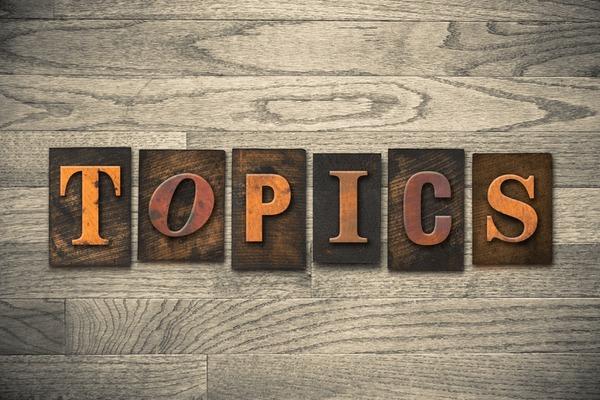Ivory Coast’s Presidential Election Faces Controversy as Opposition Leaders Are Disqualified
In a pivotal development ahead of Ivory Coast’s presidential election scheduled for October, electoral authorities have disqualified four influential opposition leaders from contesting the race. This exclusion has ignited widespread debate and concern regarding the fairness and transparency of the upcoming polls. Supporters of these figures, along with human rights organizations, argue that this move threatens to erode democratic values in a country still recovering from political instability over recent years. As tensions escalate, political analysts are scrutinizing how this decision might reshape Ivory Coast’s democratic trajectory.
Exclusion of Opposition Leaders: A Challenge to Democratic Representation
The barring of four key opposition candidates has sent shockwaves through Ivory Coast’s political arena. These individuals have historically commanded significant public support and played crucial roles in shaping national discourse. Their removal from the ballot raises pressing questions about equitable representation and inclusivity within the electoral process.
This exclusion risks fragmenting an already divided opposition landscape, potentially weakening its ability to present a unified front against incumbent powers. The consequences could manifest in several ways:
- Decline in Voter Engagement: Disenchanted voters may choose to abstain from participating altogether.
- Judicial Interventions: Legal challenges could emerge contesting the legitimacy of candidate disqualifications.
- Global Attention: International observers and watchdogs may increase scrutiny on Ivory Coast’s electoral integrity.
The unfolding scenario places immense pressure on opposition groups to navigate internal divisions while maintaining public confidence amid growing skepticism about electoral fairness.
The Broader Impact on Political Stability and Democratic Health
This controversial decision carries profound implications for both political stability and democratic governance in Ivory Coast. Historically marked by episodes of unrest linked to contested elections—such as those witnessed during the post-election crisis in 2010—the nation remains sensitive to any actions perceived as undermining free expression or fair competition at the polls.
The sidelining of prominent opposition voices risks deepening societal polarization between ruling factions and dissenters alike, potentially sparking protests or civil disturbances fueled by frustration over perceived disenfranchisement. Key concerns include:
- Heightened Political Divisions: Exclusionary tactics may widen rifts between government supporters and marginalized groups.
- Eruption of Public Unrest: Demonstrations or clashes could arise if citizens feel their voices are being suppressed unjustly.
- Diminished Electoral Credibility: Questions surrounding impartiality might delegitimize election outcomes domestically and abroad.
| Main Effect | Description |
|---|---|
| Dwindling Voter Participation | Apathy leading to reduced turnout rates across future elections |
| Energized Civil Society Movements | An upsurge in grassroots activism fostering new alliances beyond traditional parties |
| Punitive International Responses | Diplomatic pressures or sanctions aimed at encouraging adherence to democratic norms |
If these excluded leaders manage to mobilize their constituencies despite official restrictions—potentially through social media campaigns or informal networks—the resulting dynamics could significantly alter Ivory Coast’s political environment ahead of polling day.
Pushing for Electoral Reforms: Toward Greater Inclusivity & Fairness
The controversy surrounding candidate exclusions has intensified calls among civil society advocates, legal experts, and international observers for comprehensive reforms designed to enhance transparency, inclusiveness, and competitiveness within Ivory Coast’s electoral system. Critics emphasize that limiting candidacy options not only disenfranchises voters but also weakens democracy itself by narrowing public choice during critical elections.
A range of reform proposals is gaining traction among stakeholders seeking constructive solutions before October’s vote including:
- Clarifying Candidate Eligibility Standards: Develop criteria that promote open competition rather than arbitrary disqualifications based on vague grounds.
- Establishing Independent Electoral Oversight Bodies: Create autonomous commissions empowered with monitoring authority free from partisan influence.
- Strengthening Legal Safeguards: Ensure robust protections guaranteeing candidates’ rights throughout nomination processes.
- Fostering Inclusive Public Dialogue: Encourage community forums where citizens can engage directly with policymakers regarding election rules.
If implemented effectively, such measures would help restore faith among voters who currently feel marginalized while promoting a more vibrant multiparty democracy capable of reflecting diverse viewpoints across Ivorian society.
Navigating Forward Amidst Heightened Scrutiny
The exclusionary decisions cast a long shadow over what should be an inclusive exercise fundamental to national unity—the presidential election itself. With regional bodies like ECOWAS emphasizing peaceful transitions through credible ballots—and global powers increasingly attentive toward governance standards—Ivory Coast faces mounting pressure both internally and externally alike as it approaches this critical juncture.
As citizens prepare for October’s vote amidst uncertainty about candidate eligibility fairness,Ivorian democracy stands at a crossroads where government accountability will be tested alongside popular demands for genuine representation at the ballot box..

